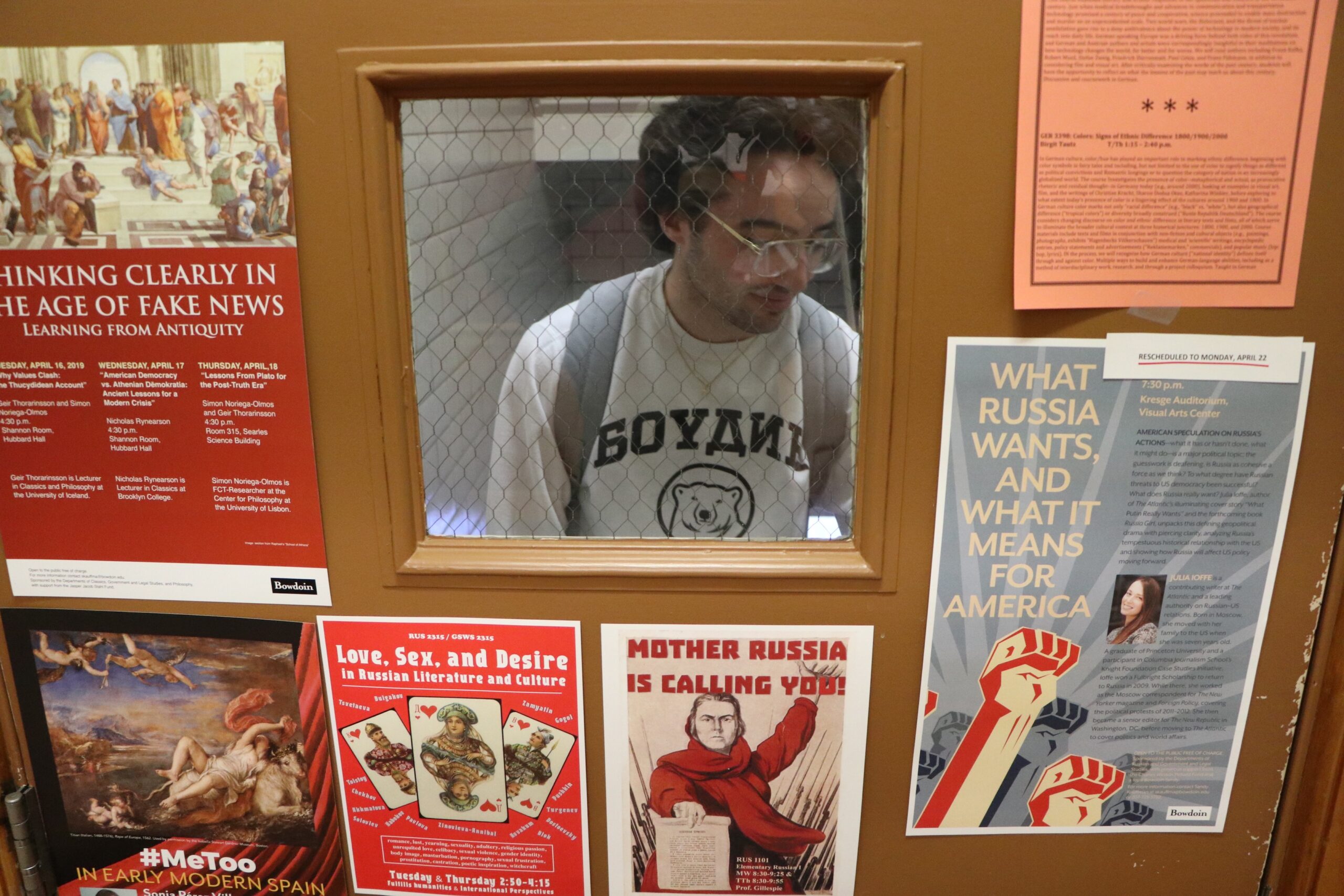Russian department booms, hires new lecturer
April 12, 2019
 Mindy Leder
Mindy LederWhen Alyssa Gillespie, now the chair of the department and associate professor of Russian, came to Bowdoin in the fall of 2016, only one student was majoring in Russian.
Since then, Gillespie has worked tirelessly to expand the department, which now has 15 majors and two minors. There are classes in both Russian language and culture, some of which are taught in English translation. Due to increased interest, the College is adding a new position. Next year, Reed Johnson, who recently received his PhD in Russian Literature from the University of Virginia, will join the department as a lecturer in Russian, working alongside Gillespie and a language teaching assistant.
The department’s rapid expansion was driven by several factors, including the efforts of faculty, the increasing utility of the Russian language and an influx of funding in both summer 2017 and 2018 from what Gillespie called a “loyal Bowdoin family.”
In order to engage more students, Gillespie has extended outreach efforts across campus through posters and events, as well as crafting classes that appeal to a wider range of students.
Classes taught in English translation, such as Gillespie’s current post-Soviet Russian cinema class, are cross-listed and give students exposure to Russian culture through their own disciplines.
“I really try to place students and their interests, goals and opinions front and center,” Gillespie said. “We also teach an interesting and diverse array of courses featuring the timeless highlights of Russian culture as well as lesser-known and contemporary works, and I think that these courses really capture students’ interest and excitement.”
The Russian department’s tight-knit community has also attracted students. Russian culture and language can be challenging to understand, especially for Americans, and creating a sense of community within the department helps students engage more deeply with the material, said Gillespie. Events such as department-wide dinners catered by Dining Service, Russian folk concerts and lecture series have helped create a bond among faculty and students.
“There are always events going on to spark interest outside of the classroom,” said Kitrea Takata-Glushkoff ’19, who is majoring in Russian and Earth and Oceanographic Science. “It’s really fun to find a sense of community, even if the people aren’t actually Russian, and to be able to connect over Russian culture.”
Gillespie believes that students tend to think of Russian as a niche subject that would have to be their only focus. But she has found that publicizing the department’s versatility and its connections to other areas of study have been instrumental in attracting students and increasing class enrollment.
“Bowdoin’s commitment to Russian studies has shown that there’s not only a demand in a liberal arts environment for the knowledge and proficiency of the Russian language, but there’s also great demand to learn about Russia as a place, as a culture and as an end to learn about the rest of the political system,” said Nicholas Kupensky, the Andrew W. Mellon Postdoctoral Fellow in Russian.
The department has benefited from Kupensky and several other fellows in the past few years. While they have bolstered the department’s course offerings, the constant turnover in teaching staff has been a challenge for both students and professors.
However, this circumstance will change at the conclusion of the semester when Johnson, the new lecturer in Russian, joins the department in a more permanent, stable role.
Gillespie said that she is excited for the addition of a lecturer in Russian and hopes that a third permanent position will be created in the future.
“I feel so well supported by the department, by my colleagues and by the Dean’s Office and administration generally,” she said. “But in the future, I would also love to have a third position.”
With a third faculty member, the department could continue to grow not only in size, but also in its range of classes, to include a first year seminar every fall, two courses in translation and four levels of language courses.
Whether or not an additional new position is added, Johnson’s arrival and the past three years’ momentum will put the department on an upward trajectory.
“It’s been really exciting to be part of a program that is on the rise, that’s coming back to life, that aspires to be one of the premier Russian language and literature programs on the liberal arts level,” Kupensky said. “It’s really inspiring to see what could happen when a university makes a commitment to the study of Russia. Bowdoin made a commitment to this, and it’s really producing phenomenal results.”

Comments
Before submitting a comment, please review our comment policy. Some key points from the policy: